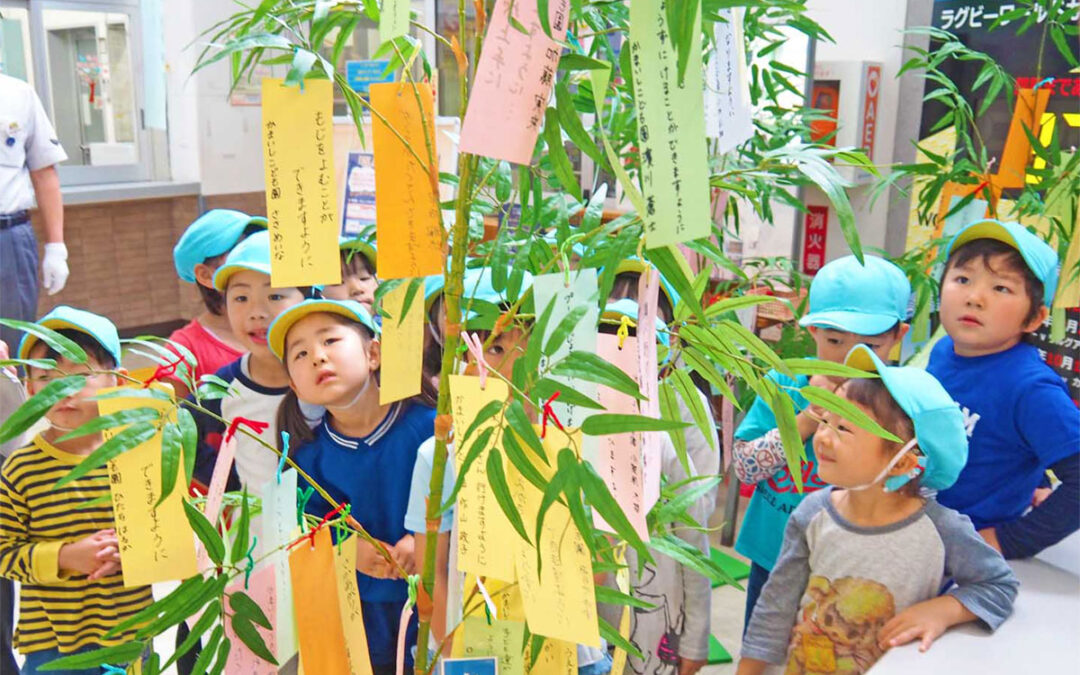
by Elizabeth Andoh | Jul 5, 2025 | Kitchen PROJECTS
The Tale of TANABATA 七夕伝説 The Tale of Tanabata, which originated in China, has been told in Japan for at least 1200 years. The Japanese version tells the story of a cowherd (Kengyū in some versions, Hikoboshi in others, as the star Altair), and the Weaving Princess...
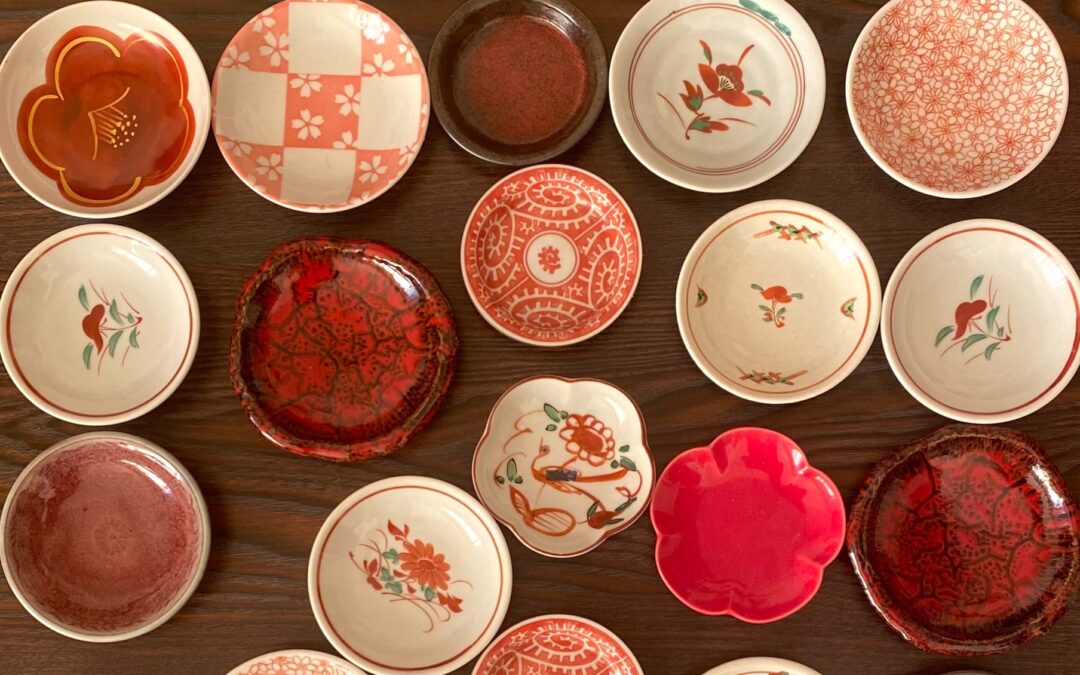
by Elizabeth Andoh | Jun 13, 2025 | Kitchen PROJECTS
MAMÉ-ZARA FunCollecting and Using Small Plates Part of the fun of collecting dishes and other tabletop accessories, is to assemble wide-ranging variations within a category. With mamé-zara, one way to do this is focus on a color scheme such as red and then collect as...
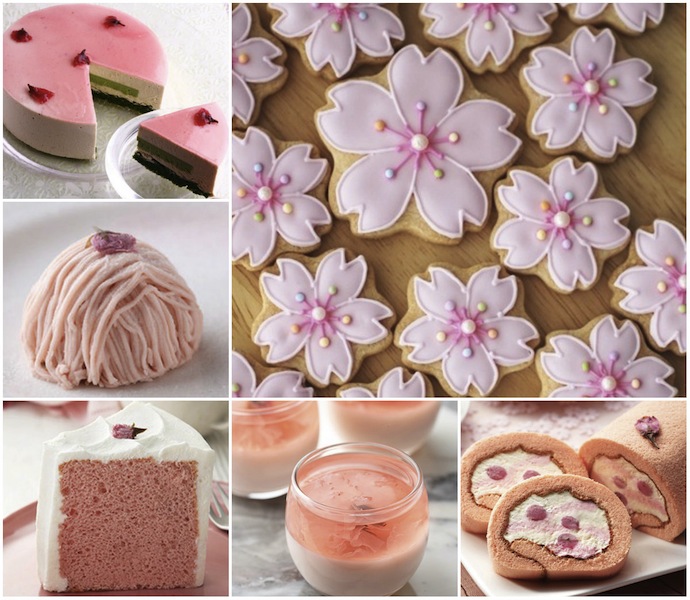
by Elizabeth Andoh | Mar 25, 2025 | Kitchen PROJECTS, Spring
洋菓子・yōgashiWestern-Style Confectionery Japan’s food culture includes ingredients, techniques and dishes that have been adopted and/or adapted from non-Japanese sources. One large category is confectionery. Earliest influences were from the Portuguese in the...
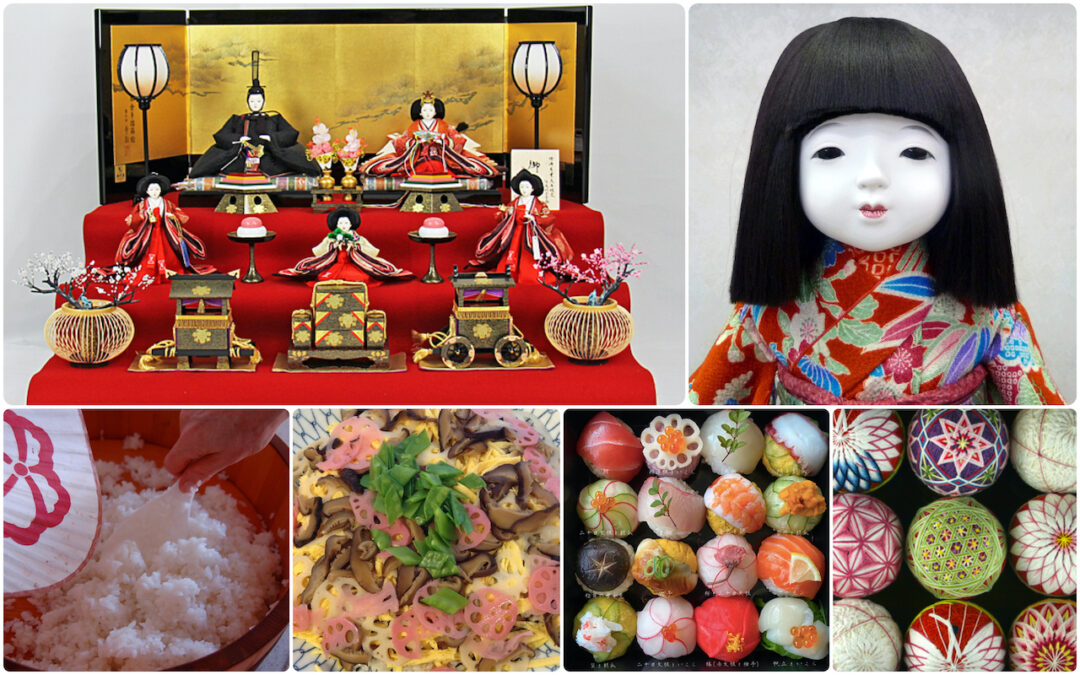
by Elizabeth Andoh | Feb 26, 2025 | Kitchen PROJECTS, Spring
This KITCHEN PROJECT features temari-zushi, bite-sized spheres of tart rice topped with various ingredients. HINA MATSURI is celebrated on March 3 and during the weeks leading up to it, and for several weeks thereafter, scattered chirashi-zushi and/or temari-zushi ...
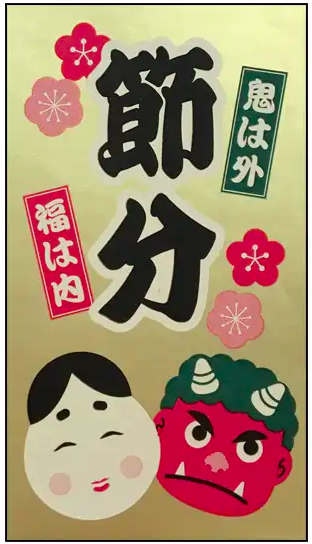
by Elizabeth Andoh | Jan 28, 2025 | Culture, Holiday, Kitchen PROJECTS, Winter
Bean-Throwing for Setsubun Mamé maki (bean-throwing for Setsubun) tosses ogres outside (with dried beans) and brings good fortune inside (with dried beans). Fuku mamé (dry-roasted “good luck” soybeans) can be black or white (beige, really). FUKU wa...

by Elizabeth Andoh | Dec 21, 2024 | Culture, Kitchen PROJECTS
NOODLE-SLURPING Anyone who has ever spent time in Japan, or regularly eats at Japanese restaurants, knows (all too well) the sound of slurping. Noodles, for sure, but soup, tea and other liquids, too. Although noodles, soup and beverages are part of every food...
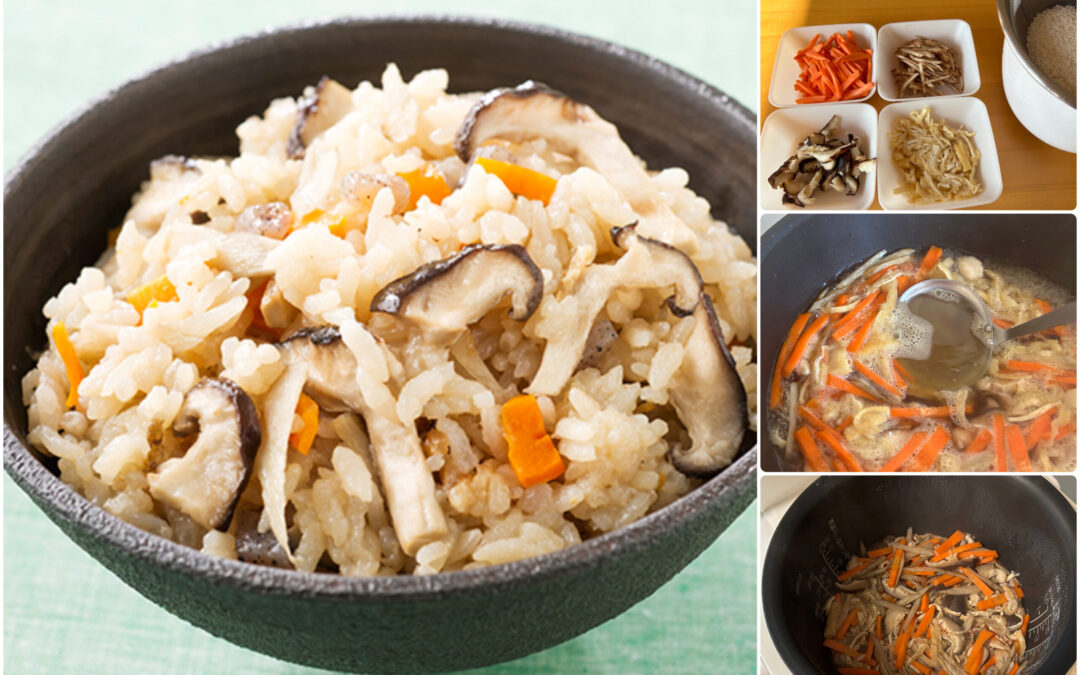
by Elizabeth Andoh | Nov 19, 2024 | Kitchen PROJECTS, Year-Round
Vegetables cooked into RiceKayaku (Takikomi) Gohan加薬 (炊き込み) ご飯 In different parts of Japan, rice that is cooked in a flavored liquid with a variety of ingredients (that went to flavoring that liquid) goes by various names. The most generic is takikomi because it...
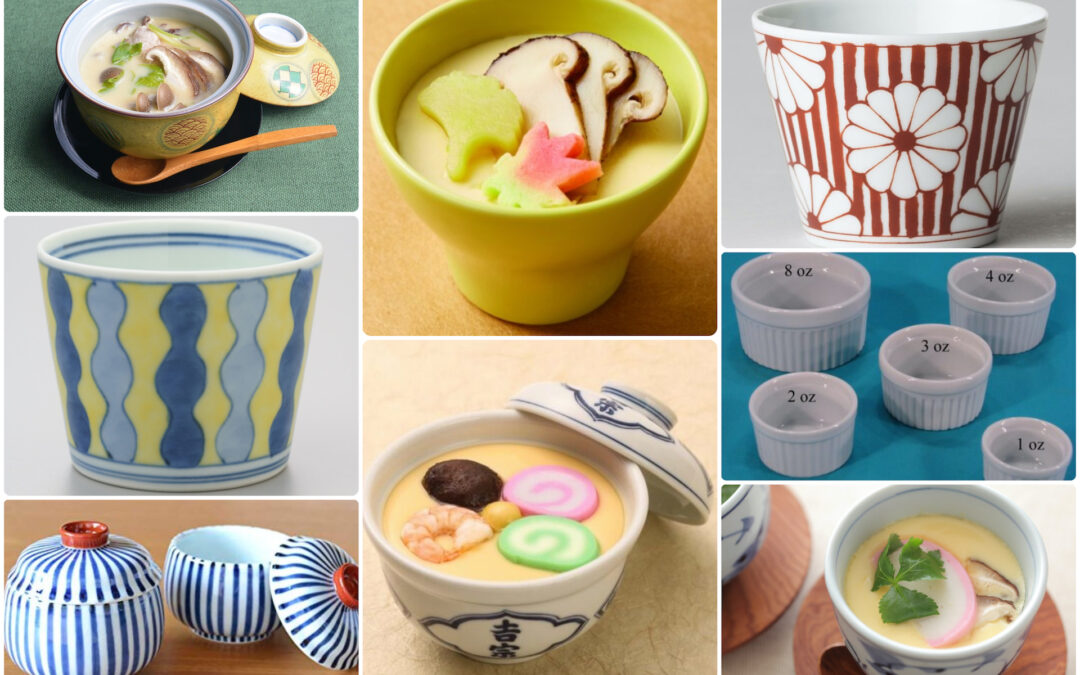
by Elizabeth Andoh | Oct 18, 2024 | Kitchen PROJECTS, Tabletop
PROJECT: Serving Steamed Foods Piping Hot This PROJECT is about serving chawan mushi, a dish that requires heatproof cups to cook the egg custards in and to bring them piping hot to table. Because Japan’s food culture places importance on the presentation of...
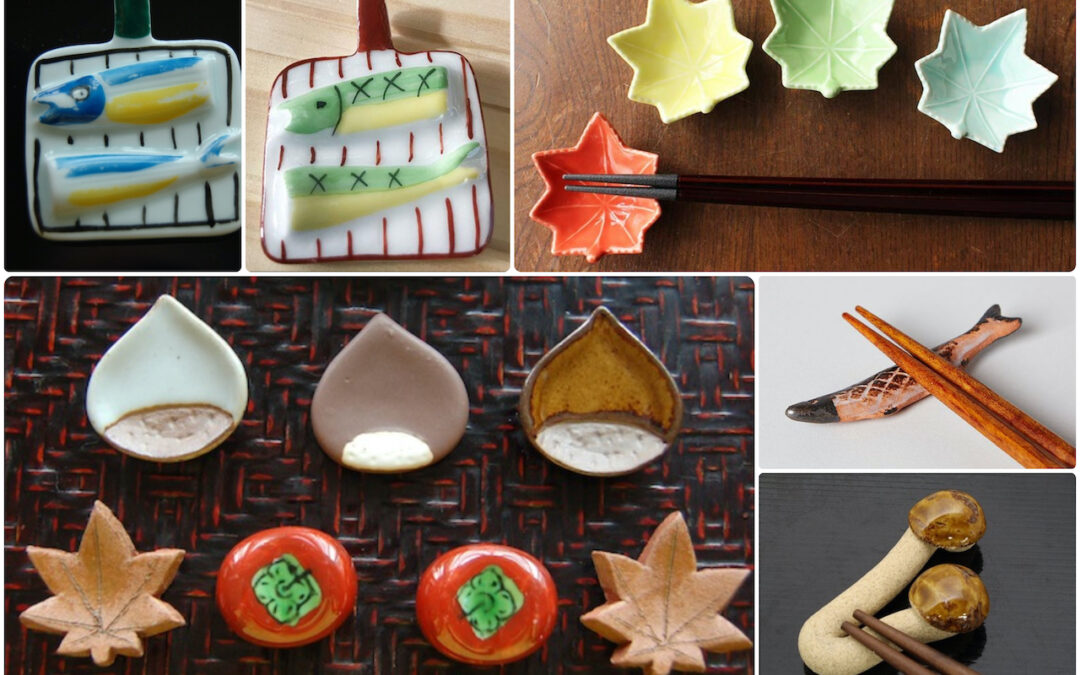
by Elizabeth Andoh | Sep 5, 2024 | Autumn, Kitchen PROJECTS, Tabletop
Setting the Table, Setting the Stage This PROJECT is about setting the table… to set the stage for autumn’s culinary pleasures. One simple and fun way to do this is by choosing fall-themed HASHI OKI (choptsick rests). Pictured above are a few of the...
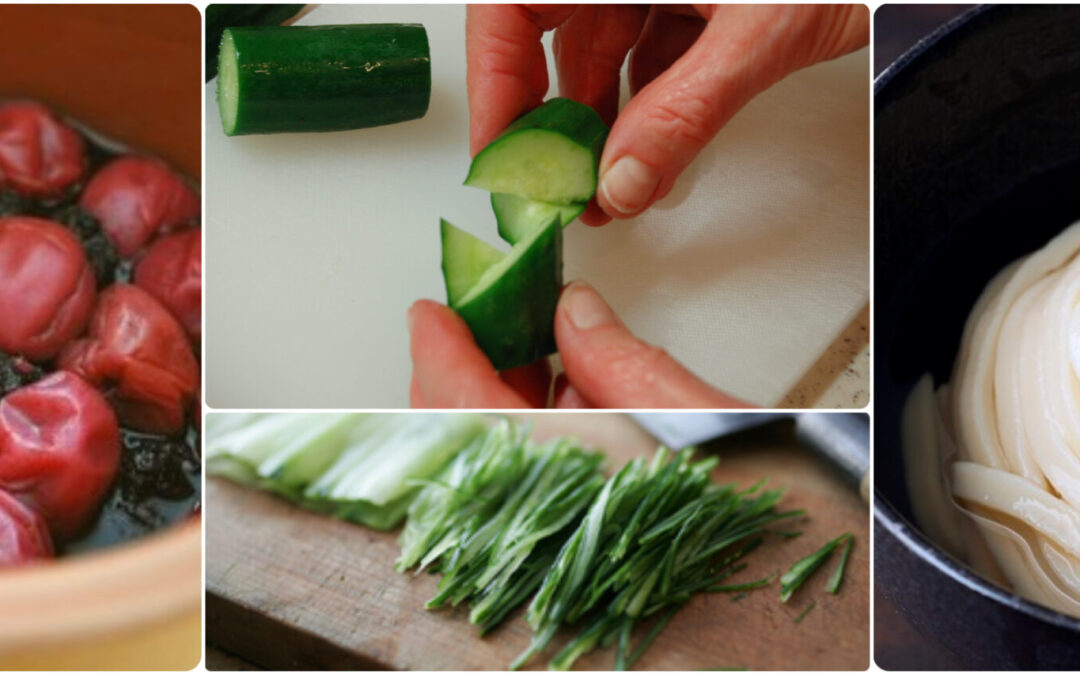
by Elizabeth Andoh | Aug 5, 2024 | Kitchen PROJECTS, Summer
This PROJECT is about making foods that are refreshing and restorative when the weather is oppressively hot and humid. Mouth-puckering UMÉBOSHI have long been touted as a way of ensuring food safety on hot days because of their anti-bacterial properties. Members of...
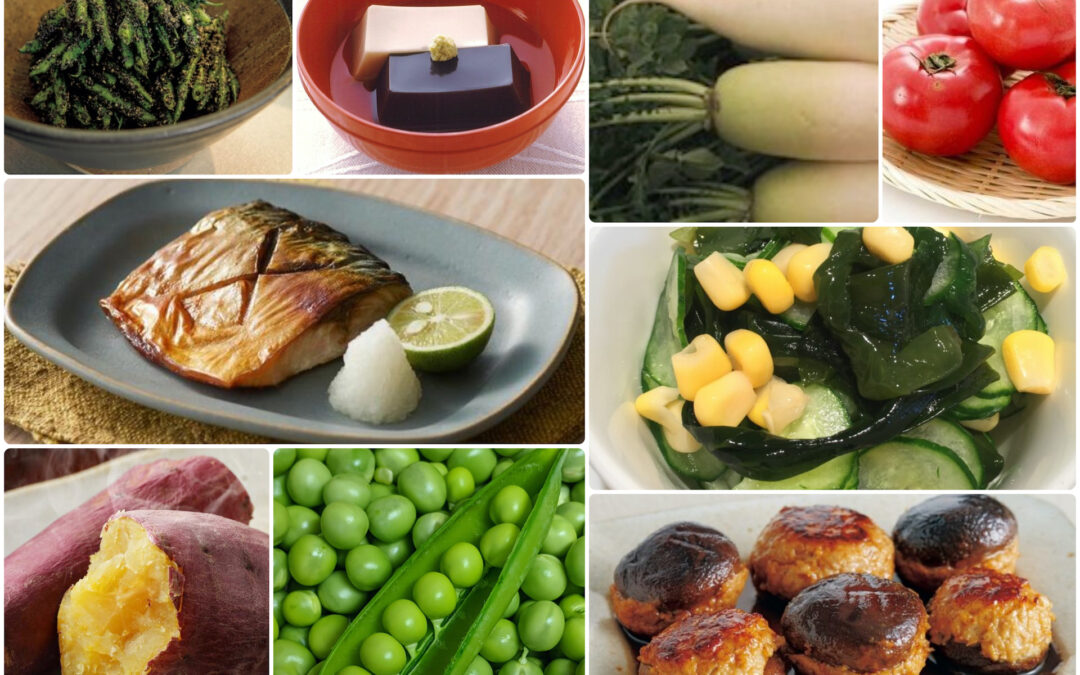
by Elizabeth Andoh | Jul 5, 2024 | Culture, Kitchen PROJECTS
PROJECT Grandchildren are Kind Grandchildren are Kind (mago wa yasashii 孫は優しい) is an acronym that helps Japanese remember the seven food groups that help support a healthy diet. The food groups are: beans (mame), sesame (goma and other seeds and nuts) sea vegetables...

by Elizabeth Andoh | Jun 11, 2024 | Kitchen PROJECTS, Summer
PROJECT Enjoying Junsai 潤菜料理 (junsai ryōri) JUNSAI (water shield; Brasenia schreberi) grows naturally in lakes, ponds and slow streams in many parts of the world but only Japan and China have a long history of cultivating the plant as a food. Young, unfurled sprouts...
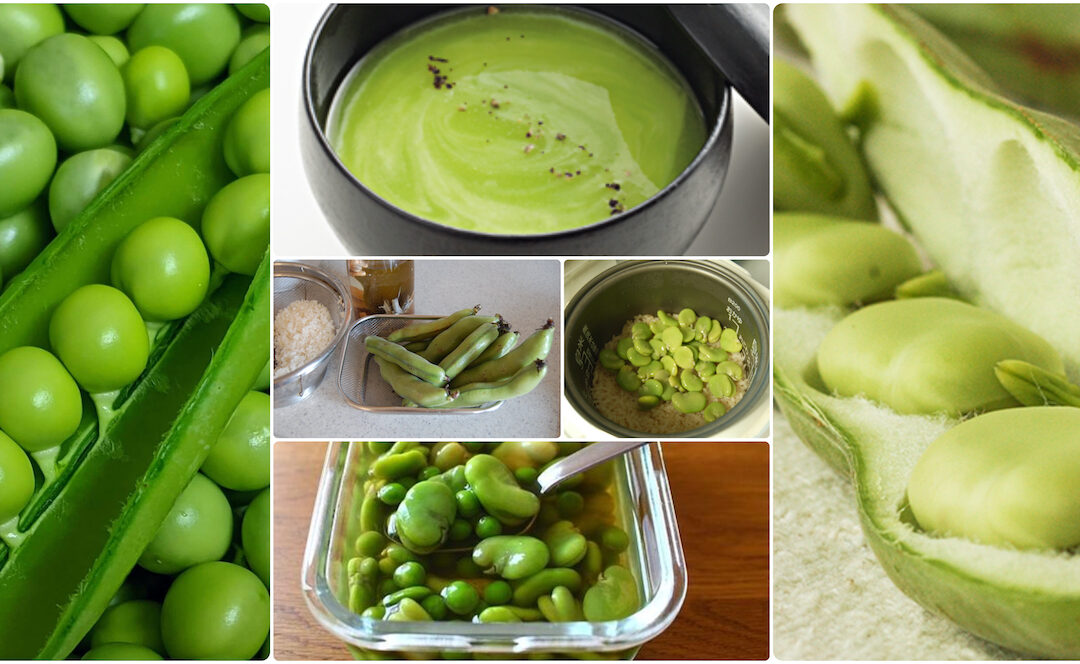
by Elizabeth Andoh | May 3, 2024 | Kitchen PROJECTS, Summer
PROJECT Cooking with Early Summer Bounty 初夏の幸の料理 (shoka no sachi no ryōri) The Japanese delight in cooking with seasonal produce and in the early summer that means making delicious dishes with new peas and beans. Using the recipes below as a point of departure, create...
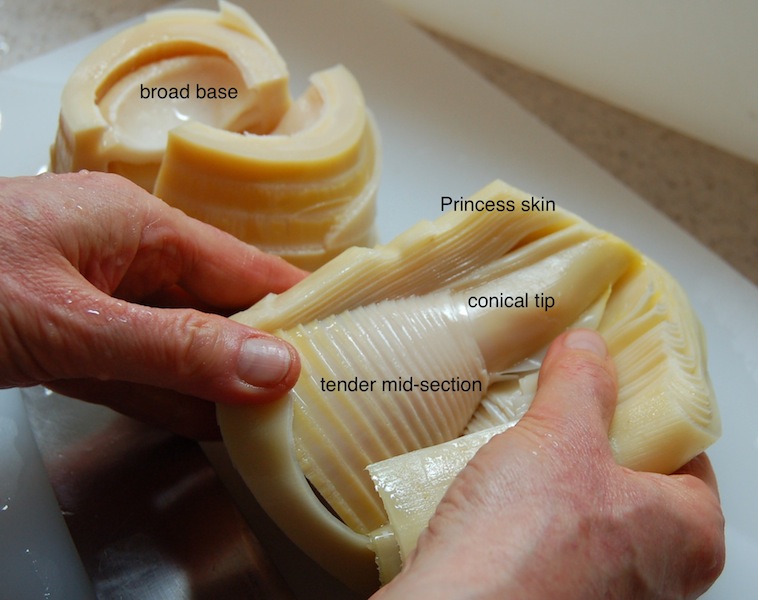
by Elizabeth Andoh | Apr 6, 2024 | Kitchen PROJECTS, Summer
PROJECT Cooking with Bamboo Shoots A single bamboo shoot has different segments, each with a different texture and flavor profile. The BROAD BASE is best suited to cutting into circular slabs, half-moon slices, or chunks. Try slathering these with miso and broiling to...
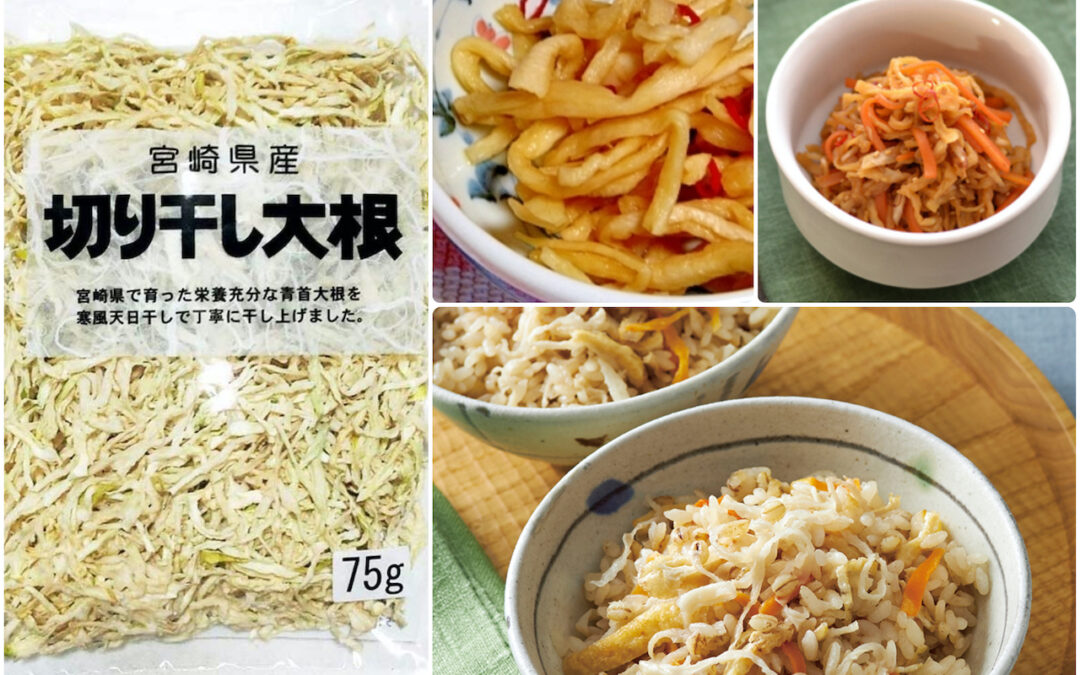
by Elizabeth Andoh | Mar 16, 2024 | Kitchen PROJECTS, Year-Round
Cooking with KIRIBOSHI DAIKON in your kitchen. This versatile ingredient can be used in soups, pickles, rice dishes and a variety of sides, too. Here are a few recipes to get you started: Kogane Meshi, a takikomi-style rice dish Granny’s Sun-Dried Radish, a...
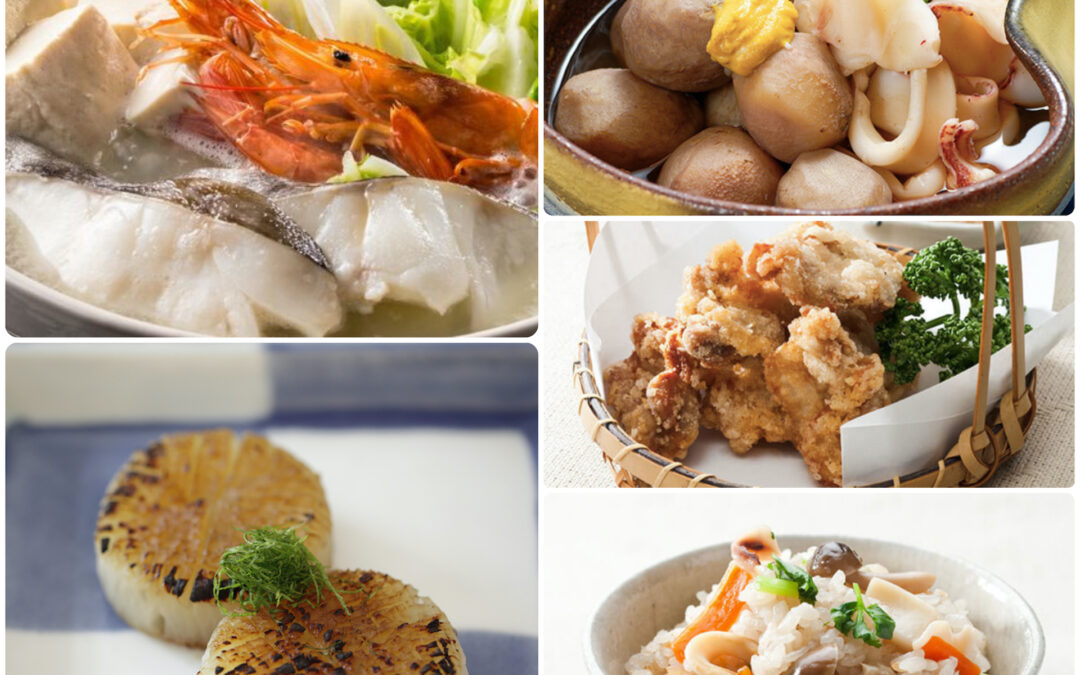
by Elizabeth Andoh | Feb 4, 2024 | Kitchen PROJECTS, Year-Round
Five ways to use fermented fish sauce There are lots of ways of using fish sauce. Here are a few popular examples: (top, left) NABÉMONO (hot pots that get assembled ahead and simmered at table) are often made with a seasoned broth. IKANAGO NABÉ seasoned with funky...
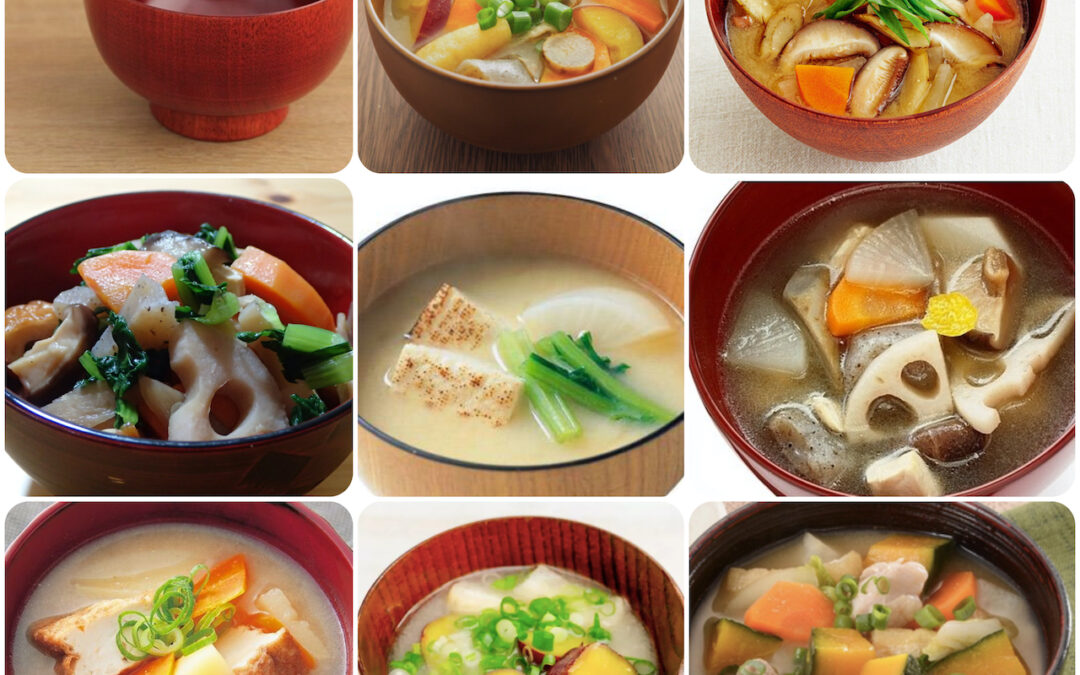
by Elizabeth Andoh | Jan 8, 2024 | Kitchen PROJECTS, Year-Round
PROJECT Miso Soup In most Japanese households, miso soup is served daily, often as part of breakfast, though it could just as easily appear at lunch or dinner. Most Japanese have strong regional preferences when choosing what miso to use (details posted to Kitchen...
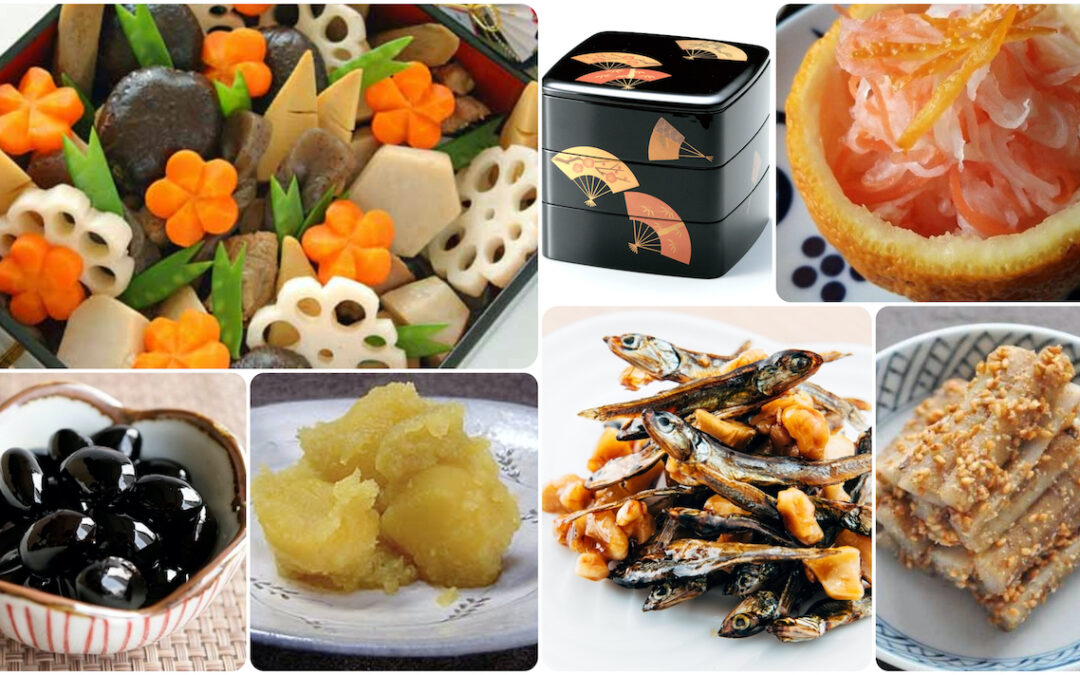
by Elizabeth Andoh | Dec 11, 2023 | Holiday, Kitchen PROJECTS, Winter
PROJECT Osechi-Making December is a busy time… The Japanese aptly call the final month of the year shiwasu, written with calligraphy for “professor” 師 and “running about in a tizzy” 走. In Japan shiwasu is a time of frenzied activity that...
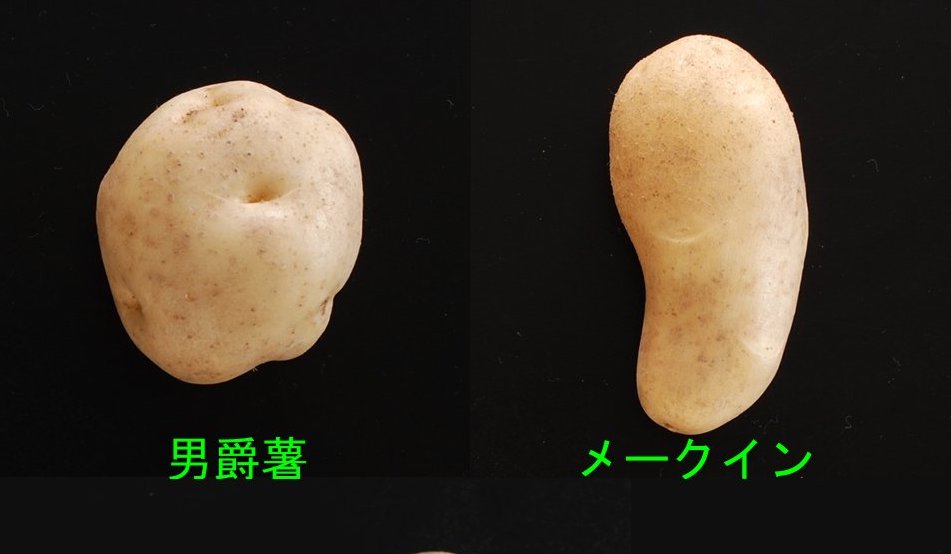
by Elizabeth Andoh | Nov 3, 2023 | Kitchen PROJECTS, Year-Round
PROJECT Potato Most white-fleshed potatoes generally fall into either of two categories: fluffy OR waxy. Fluffy potatoes are high-starch and tend to crumble when simmered; they are perfect for mashing, and when making korokke (croquettes). The Japanese often describe...
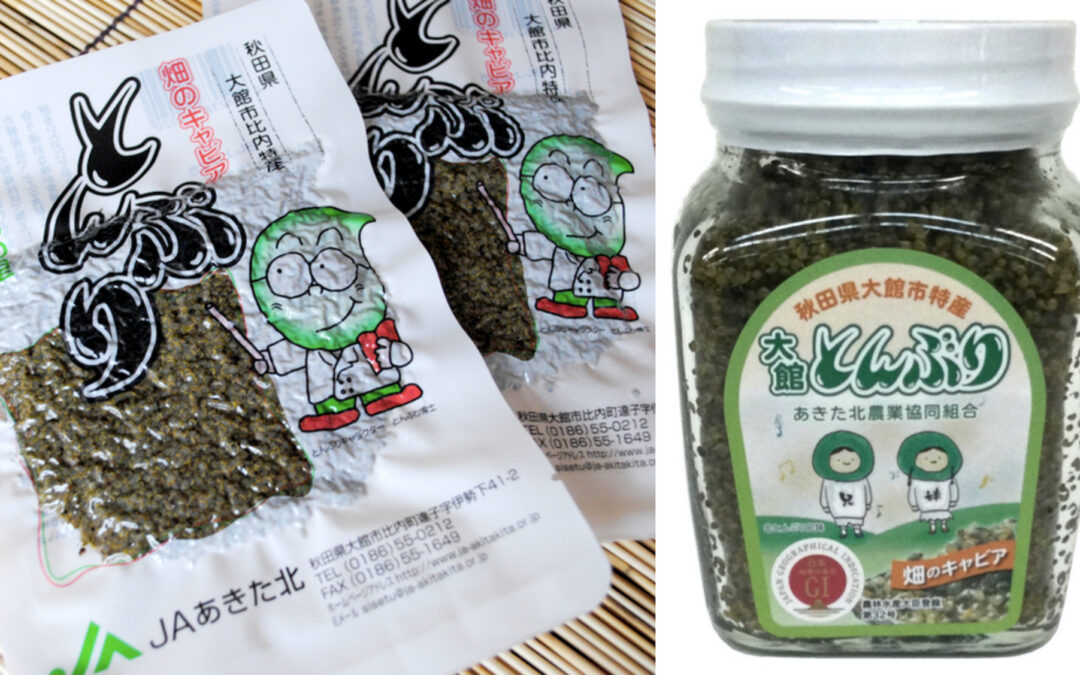
by Elizabeth Andoh | Oct 2, 2023 | Kitchen PROJECTS, Summer
PROJECT TONBURI Tonburi, the seeds of the broom plant, are tiny and black-green in color. Because they mimic the appearance and mouthfeel of sturgeon caviar tonburi is often referred to as hataké no kyabia (“caviar of the field”). Akita prefecture in the Tohoku...





















